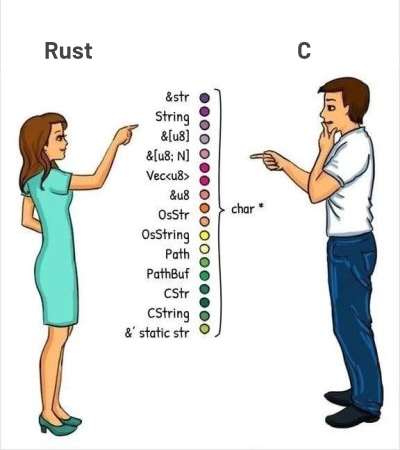this post was submitted on 25 Jan 2024
24 points (80.0% liked)
C Programming Language
993 readers
1 users here now
Welcome to the C community!
C is quirky, flawed, and an enormous success.
... When I read commentary about suggestions for where C should go, I often think back and give thanks that it wasn't developed under the advice of a worldwide crowd.
... The only way to learn a new programming language is by writing programs in it.
- irc: #c
🌐 https://en.cppreference.com/w/c
founded 1 year ago
MODERATORS
you are viewing a single comment's thread
view the rest of the comments
view the rest of the comments

max width of utf8 is 32 bits from my extensive research (1 minute of googling) so it should work, right?
UTF-8 is a variable encoding so none of the fixed sized type would work better for it.
But it would work
It would no longer be UTF-8; it would be UTF-32. UTF-8 is an encoding scheme, meaning that it is a specification for exactly how text is encoded as bits.
You can certainly use UTF-32 to represent all valid unicode, but you can only do that within the bounds of a single program; once you need to read or write data to or from an external source (say, the file system, or over a network), you'd need to use the same encoding that the other software uses, which is usually UTF-8 (and almost never UTF-32).